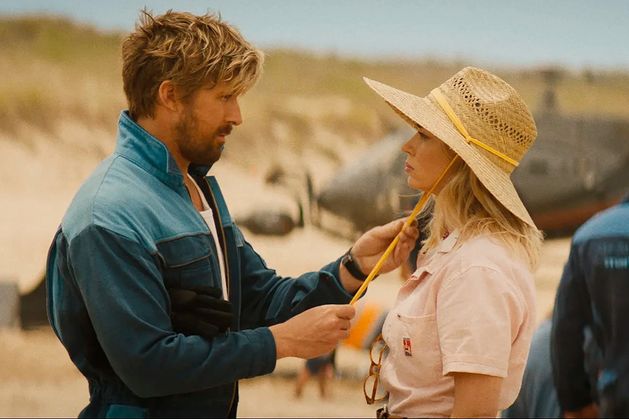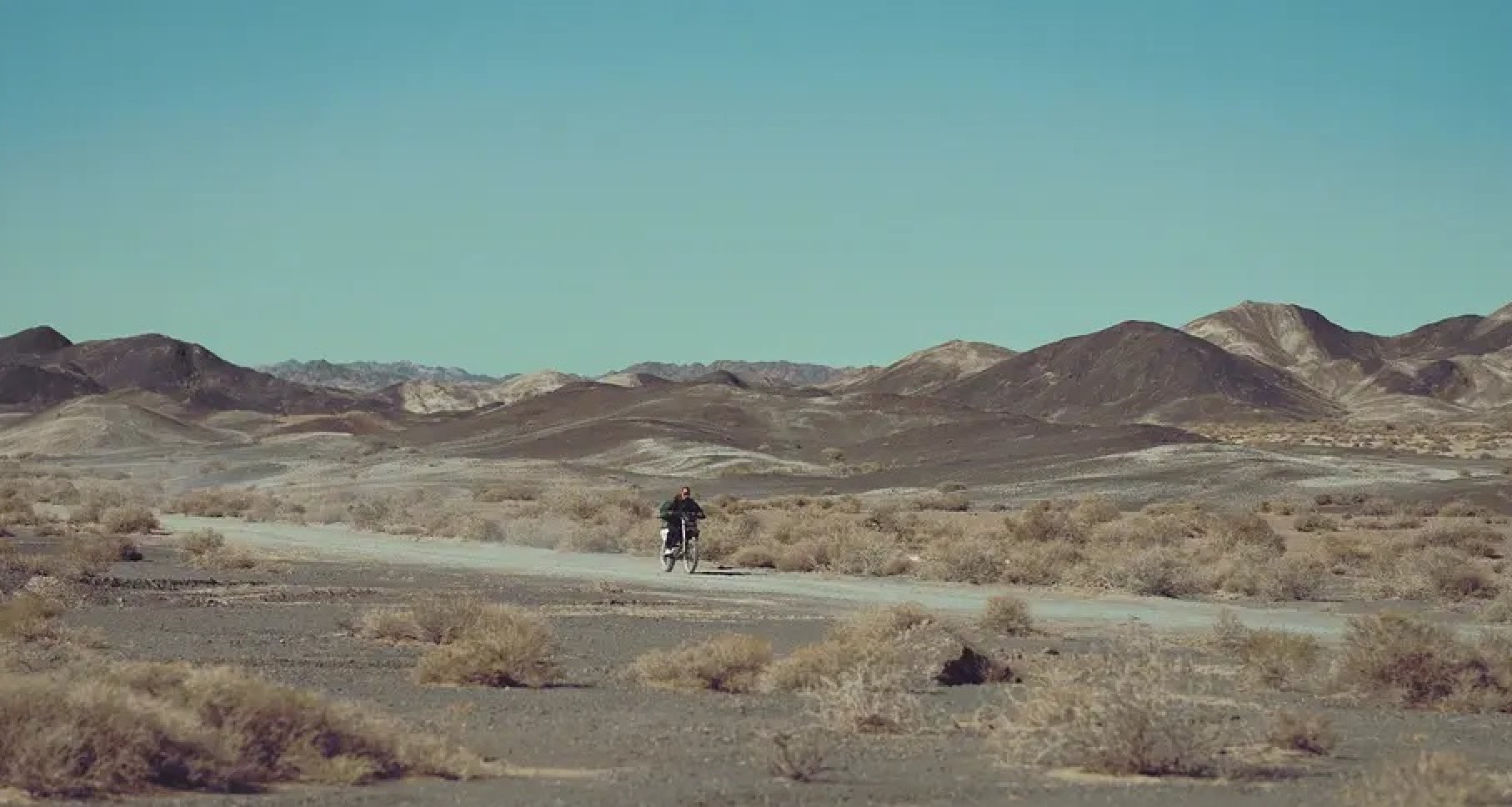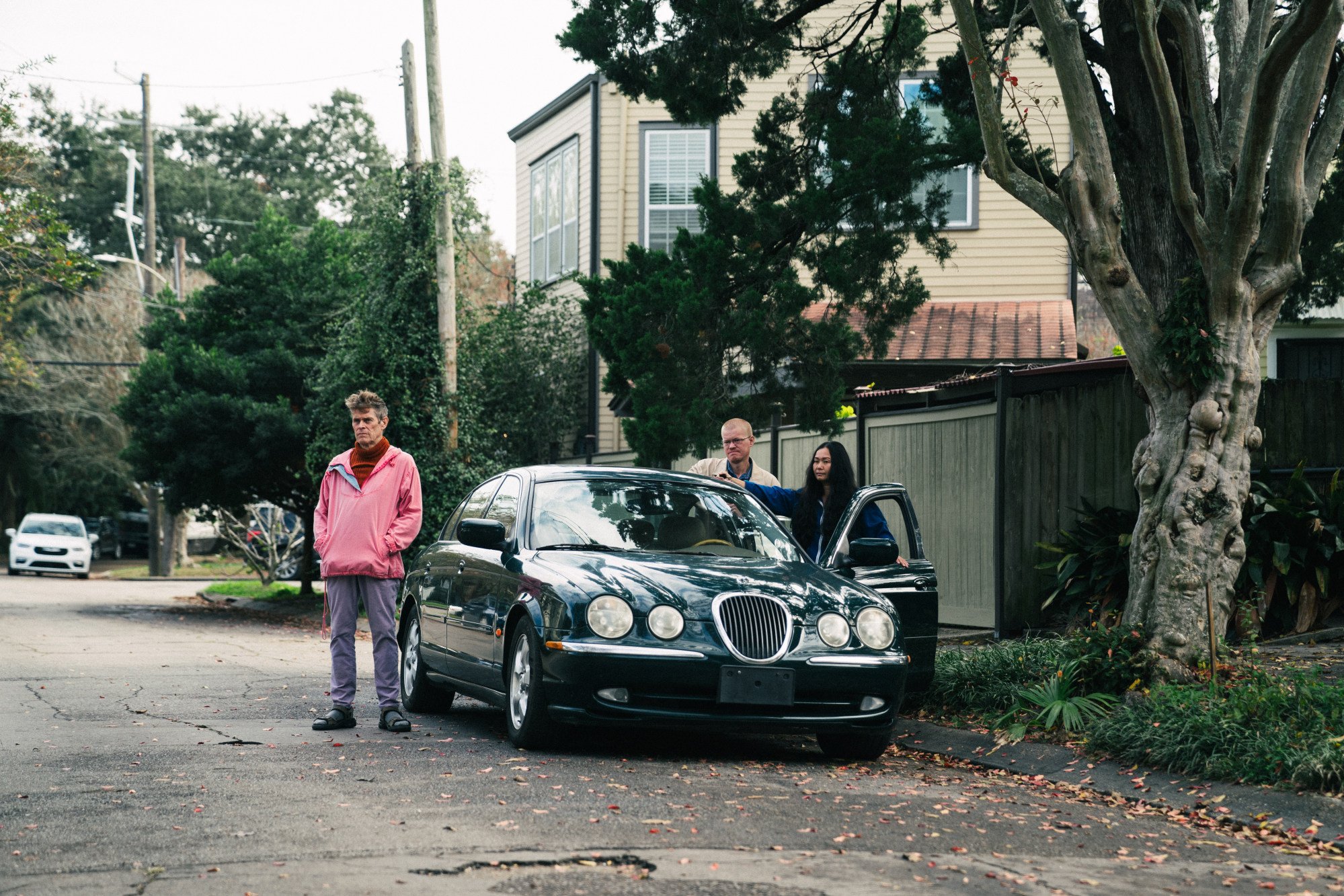Movie Reviews
The Fall Guy review: The Ryanaissance continues, while Emily Blunt shines in this screwball comedy

In cinemas; Cert 12A
Ryan Gosling and Emily Blunt in ‘The Fall Guy’
Colt Seavers (Ryan Gosling) was the best stuntman in the business before a nasty accident derailed his career. There is always a way back and, after a tetchy film producer reaches out, Colt agrees to dust off his jumpsuit for a big-budget sci-fi epic directed by his ex-girlfriend, Jody Moreno (Emily Blunt).
An awkward situation, and it gets weirder: the film’s leading man, Tom Ryder (Aaron Taylor-Johnson) is missing, and its producer Gail (Hannah Waddingham) thinks he may have fallen in with the wrong crowd. It’s up to Colt, then, to track him down, save the movie and win back the girl of his dreams.
Loosely inspired by the Lee Majors TV series, The Fall Guy makes a lot of noise, some of it not entirely unpleasant. Come for the fist-fights, the explosions, and the self-aware punchlines; stay for a classy screwball comedy about a broken-hearted filmmaker and her bumbling stunt performer.
The Ryanaissance continues, and Gosling is having the time of his life here. Blunt, meanwhile, is the beating heart of this daft presentation. David Leitch’s film is far too pleased with itself, but our handsome leads make it work.
Three stars

Movie Reviews
Black Dog: Chinese director Guan Hu makes Cannes debut

2.5/5 stars
Black Dog begins with all the trappings of a revenge Western. Set in a godforsaken town where bad guys roam around with impunity, it revolves around a reticent man returning home after a decade-long absence to confront his sworn enemies.
It also seems to have everything in place for a political allegory. Juxtaposing images of crumbling tenements with incessant radio news bulletins about the Beijing Olympics, the story, set in 2008, could offer commentary about the clash of reality and dreams in 21st century China.
As it turns out, Guan Hu’s film is neither. From the big bang of its first half-hour, Black Dog is slowly reduced to a whimper, as what was set up to be a hard-boiled genre film turns into a sentimental relationship drama about a wayward man’s attempt to connect with his family, friends, foes and his new four-legged buddy.
Settling into his long-abandoned home, his past returns to haunt him in the form of the local butcher, who accused Lang of having caused his nephew’s death.
But the bad guy in town is Yao (Jia Zhangke), the chain-smoking leader of a bunch of “dog management officers” who capture strays and steal pets in order to resell them elsewhere for a profit.
Lang joins Yao to earn some hard cash, only to find his humanity flickering back to life when he forms a bond with a raging, rabies-stricken hound. This inspires him to reconcile with his adversaries, his ailing zoo-master father and his younger self.
While there’s nothing wrong with Guan’s decision to steer a fatalistic tale towards a happy ending, the change of tone does Peng few favours, as he is forced to reprise the kind of gawky man-child role he has been typecast in for just too long.

Meanwhile, the flood of positive energy in the second half of the film renders its remarkable set design evoking doom and gloom irrelevant. The same can be said even of apparently important characters: Dong Liya’s circus acrobat, for example, is left with nothing to do as the prospect of forming a relationship with Lang evaporates.
The canines are cute, though – and for some, perhaps, that is Black Dog’s main draw.
Movie Reviews
Kinds of Kindness: Poor Things director at his most elusive

In the first, “The Death of R.M.F.”, Jesse Plemons plays Robert, a man who appears in thrall to Raymond (Willem Dafoe), who sets Robert’s agenda, from his diet to his sexual encounters.
In the second, “R.M.F. Is Flying”, Plemons plays Daniel, a cop whose wife Liz (Emma Stone) has gone missing; when she returns, he is convinced she is an imposter.
Finally, in “R.M.F. Eats a Sandwich”, Stone plays Emily, a woman who seeks out a cult leader (Dafoe) for a spiritual and sexual awakening.
Inevitably, as is the case with most portmanteau films, one episode stands out – in this case “The Death of R.M.F.”, which has an unnerving quality to it.
The second instalment is the most shocking, featuring Liz and Daniel sitting around with friends (Mamoudou Athie and Margaret Qualley) watching a highly explicit sex tape the four of them made.
Bringing up the rear is the final short, which rather drags with its depictions of sweat lodges, bodily contamination, and Stone skidding around in her cool-looking Dodge Challenger.
Stone, now on her third movie with the Greek director, seems to relish the extremes she gets to go to.

Quite what it all means, however, is another thing entirely. The characters seem to be in states of crisis, with miscarriage a common theme.
Looking at humanity in all its weirdness, Kinds of Kindness is a baffling film to take in, as abrasive as its musical score from Jerskin Fendrix, who performed similar tricks on Poor Things.
Certainly, compared to his more accessible films, such as The Favourite and Poor Things, this feels like Lanthimos at his most elusive and frustrating.
Movie Reviews
‘Elizabeth Taylor: The Lost Tapes’ Review: A Legend Opens Up in Nanette Burstein’s Engaging HBO Doc Based on Rediscovered Audio Recordings

A celebrity from the age of 11, Elizabeth Taylor was practiced at public relations for almost all her life, so there aren’t many personal revelations in Elizabeth Taylor: The Lost Tapes. But Nanette Burstein‘s elegantly constructed documentary, mostly in Taylor’s own words backed by illuminating archival images, works as a lively bit of film history about movie stardom in the volatile 1960s as the studio system was fading and the media exploding.
The film — which premiered at Cannes in the Cannes Classics sidebar — is based on 40 hours of recently rediscovered audiotapes, recordings Taylor made in the mid-1960s for a ghost-written memoir (long out of print). It was the most frenzied moment of her fame, when she was coming off the paparazzi-fueled scandal that was Cleopatra. Taylor, who died in 2011, recalls her many marriages — four when she made these recordings, since she was on the first of two to Richard Burton — and her career, from her start as a child in Lassie Come Home (1943) through her Oscar-winning performance in Who’s Afraid of Virginia Woolf? (1966).
Elizabeth Taylor: The Lost Tapes
The Bottom Line An entertaining if unsurprising time capsule.
Venue: Cannes Film Festival (Cannes Classics)
Cast: Elizabeth Taylor
Director: Nanette Burstein
Writers: Nanette Burstein, Tal Ben-David
1 hour 41 minutes
As she did in Hillary, about Hillary Clinton, and The Kid Stays in the Picture, based on Robert Evans’ autobiography, Burstein stays out of her celebrity subject’s way. Taylor’s voice is playful, almost girlish. Occasionally she is blunt, but more often seems cautiously aware of being recorded. Richard Meryman, the Life magazine reporter doing the interviews, is heard asking questions at times, but Taylor is firmly in control, at least on the surface.
Beneath that you can tell how beautifully Burstein and her editor and co-writer, Tal Ben-David, shaped the visuals. The archival photos and news clips offer a telling backdrop of images and sound bites, often more informative than what Taylor says — from shots of crowds filling the streets of London to see her on the day of her second wedding, to the actor Michael Wilding, to film of her in mourning black at the funeral of her beloved third husband, the producer Mike Todd, who died in a plane crash. The visual exceptions are the clichéd, recurring establishing shots of an old-fashioned reel-to-reel tape recorder, next to a martini glass.
Moving chronologically, Taylor begins with her desire to act even as a child. Photos from that time offer a reminder that she was always astonishingly beautiful. These early sections are fine but bland. She was too young to be married the first time, to Nicky Hilton, she says, and the second marriage just didn’t work out. George Stevens gave her subtle direction and bolstered her confidence when she made A Place in the Sun (1951). When she made Giant with him five years later, he berated her, telling her she was just a movie star and not an actress, a charge that often dogged her.
Taylor becomes sporadically more biting as the film goes on, displaying a sharp-tongued wit and personality. That is particularly true when she talks about her marriage to Eddie Fisher, the first of her marital scandals, covered endlessly in tabloids. It was public knowledge that Fisher and his wife, Debbie Reynolds, were the Todds’ best friends. Shortly after Mike Todd’s death, Fisher left his wife, whose image was always cheery and wholesome, for Taylor. “I can’t say anything against Debbie,” Taylor sweetly says on the tape, and without taking a breath goes on, “But she put on such an act, with the pigtails and the diaper pins.” She says of Fisher, “I don’t remember too much about my marriage to him except it was one big frigging awful mistake.”
Burstein includes some enlightening sidelights from that period. A news clip of the recently married couple has them surrounded by journalists on the steps of a plane, with one reporter asking Fisher about his bride, “Can she cook?” Even as a tease, who would dare say that now?
That fuss was nothing next to Cleopatra (1963), now notorious as the film so over-budget it almost bankrupted 20th Century Fox, and the set on which Taylor and Burton, each married to other people, indiscreetly sparked to each other from the start. The Vatican newspaper weighed in on the affair, disapprovingly. Taylor says her own father called her “a whore.” In one of the film’s more telling scenes, she says of their affair, “Richard and I, we tried to be what is considered ‘good,’ but it didn’t work,” a comment that at once plays into the moralistic language of her day and resists it. These signs of Taylor’s savvy awareness of herself as a public personality are the film’s most intriguing, if scattershot, moments.
The film also shows how besieged the couple was by the paparazzi, at a turning point in celebrity culture. Occasionally other voices are heard in archival audio, and in this section George Hamilton says of the press, “They were not going for glamour anymore. They were going for the destruction of glamour,” suggesting a longing for the old pre-packaged studio publicity days. But Taylor herself is never heard complaining. A realist, she made hiding from the paparazzi into a game for her children so they wouldn’t be frightened.
The recordings end at the point where she is assuring Meryman that she and Burton would be together for 50 years. The film then takes a quick trot through the rest of her days, including rehab at the Betty Ford Center and raising money for AIDS research. But the last word should have been Taylor’s. There is a private Elizabeth, she says. “The other Elizabeth, the famous one, really has no depth or meaning to me. It is a commodity that makes money.” The movie star Taylor is the one who most often comes through in the film, but that is engaging enough.
-

 World1 week ago
World1 week agoPentagon chief confirms US pause on weapons shipment to Israel
-

 Politics1 week ago
Politics1 week agoRFK Jr said a worm ate part of his brain and died in his head
-

 Politics1 week ago
Politics1 week agoOhio AG defends letter warning 'woke' masked anti-Israel protesters they face prison time: 'We have a society'
-

 Education1 week ago
Education1 week agoVideo: Police Use Pepper Spray on Protesters on G.W.U.’s Campus
-

 News1 week ago
News1 week agoNine Things We Learned From TikTok’s Lawsuit Against The US Government
-

 Politics1 week ago
Politics1 week agoBiden’s decision to pull Israel weapons shipment kept quiet until after Holocaust remembrance address: report
-

 World1 week ago
World1 week agoA look at Chinese investment within Hungary
-

 News1 week ago
News1 week agoThe Major Supreme Court Cases of 2024














